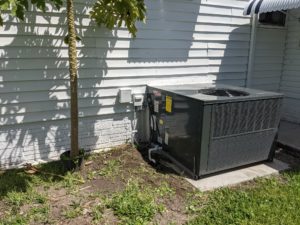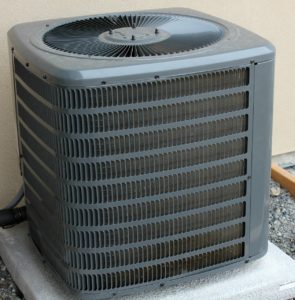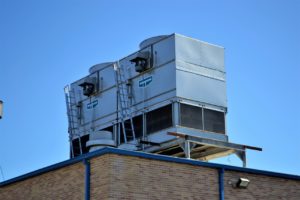HVAC Indoor Air Quality: Why it Matters and How to Improve it

HVAC Indoor Air Quality: Why it Matters and How to Improve it
The quality of the air we breathe indoors has a significant impact on our health and well-being. Poor indoor air quality can cause or worsen respiratory problems, trigger allergies and asthma, and even lead to more serious health issues over time. HVAC (heating, ventilation, and air conditioning) systems play a crucial role in maintaining good indoor air quality. In this blog post, we’ll explore why indoor air quality matters and how to improve it with the help of your HVAC system.
The Importance of Indoor Air Quality
Many elements, such as household items, external air pollution, and human activities like cooking and cleaning, have an impact on indoor air quality. If HVAC systems are not properly constructed or maintained, they may potentially contribute to indoor air pollution. Here are a few important factors:
- Respiratory Health: Poor indoor air quality can cause or worsen respiratory problems such as asthma and allergies. Dust, pollen, and other particles in the air can trigger symptoms like coughing, wheezing, and shortness of breath.
- Long-term Health Risks: Exposure to indoor air pollution over time can lead to more serious health issues such as heart disease, lung cancer, and stroke.
- Comfort and Productivity: Poor indoor air quality can also make people uncomfortable and less productive. Symptoms such as headaches, fatigue, and irritation can affect a person’s ability to concentrate and work effectively.
How HVAC Systems Influence the Quality of Indoor Air
HVAC systems are essential for preserving a high standard of indoor air. To provide a cozy and healthful indoor atmosphere, they regulate temperature, humidity, and ventilation. If HVAC systems are not properly constructed or maintained, they may potentially contribute to indoor air pollution. A few ways HVAC systems can impact indoor air are listed below:
- Inadequate Filtration: HVAC systems employ filters to capture airborne particles, but if the filters are not regularly replaced, they can clog and let pollutants circulate.
- Insufficient Ventilation: HVAC systems also offer ventilation to let in fresh air from the outside and exhaust stale air from the inside. Inadequate ventilation can allow contaminants to build up and pollute the air within a building.
- Contaminated Ducts: If HVAC ducts are not cleaned frequently, they may get polluted with dust, pollen, and other particles. As a result, the HVAC system may blow contaminated air all over the structure.
How HVAC Systems Can Increase Indoor Air Quality
- Filters should be changed on a regular basis, ideally every three months, or more frequently if they get clogged. This will make it more likely that the filters will be able to capture pollutants and stop them from spreading through the air.
- Deliver Sufficient Ventilation: In order to remove stale interior air and bring in fresh outdoor air, HVAC systems should provide appropriate ventilation. Mechanical or natural ventilation systems can be used to achieve this.
- Clean Ducts: To avoid the buildup of dust, pollen, and other debris, HVAC ducts should be cleaned frequently. By doing this, you can make sure that the HVAC system is distributing clean air throughout the entire structure.
- Employ high-efficiency filters to further improve indoor air quality because they can capture smaller particles than regular filters.
- Control Humidity: To stop the growth of mold and other indoor air pollutants, HVAC systems should also control humidity levels. Maintain humidity levels between 30% and 50%.
Conclusion

How to Choose the Right Company for Your AC Installation
How to Choose the Right Company for Your AC Installation If you’re in the market for a new air conditioning system, choosing the right company
Span/AC Capacitor
Todo lo que necesita saber sobre los Capacitaores de Aire acondicionado English Cuando se trata de sistemas de aire acondicionado, hay varios componentes que trabajan

Span/The Importance of Finding the Right AC Installation Near You
La importancia de encontrar lainstalacion de aire acondicionado adecuada cerca de usted English Cuando se trata de instalar un nuevo sistema de aire acondicionado en

Span/Air conditioning systems
Sistemas de calefacción, ventilación y aire acondicionado (HVAC) English La comodidad de una casa está muy influenciada por los sistemas de calefacción, ventilación y aire
Articles
- How to Choose the Right Company for Your AC Installation
- Span/AC Capacitor
- Span/The Importance of Finding the Right AC Installation Near You
- Span/Air conditioning systems
- Duct Cleaning Services
- The Importance of Finding the Right AC Installation Near You
- AC Capacitor
- AC Repair -Miami
- Air duct cleaning FAQs
- The Importance of Air Duct Cleaning in Miami
- How Does an Air Conditioning system Operate?
- The Advantages of HVAC Service Agreement Plans for Customers
- The Importance of Duct Cleaning Services
- HVAC Indoor Air Quality: Why It Matters And How To Improve It
- The importance of hiring an HVAC contractor
- How to Choose the Right Air Filter for Your Home’s Air Conditioning System
- 10 Crucial Pointers for preparing your ac for the summer
- Preventative Maintenance
- Flexible vs Rigid Duct system
- Air conditioning systems
- Span/Cómo limpian los conductos nuestros profesionales
- Span/Mitos de limpieza de conductos
- Span/Cómo los ácaros del polvo afectan la calidad del aire
- Span/Limpieza de conductos
